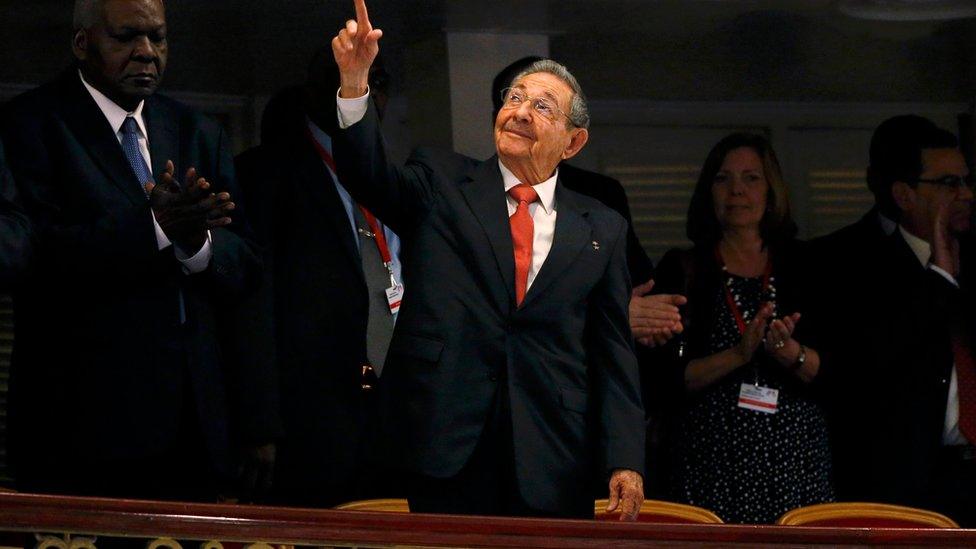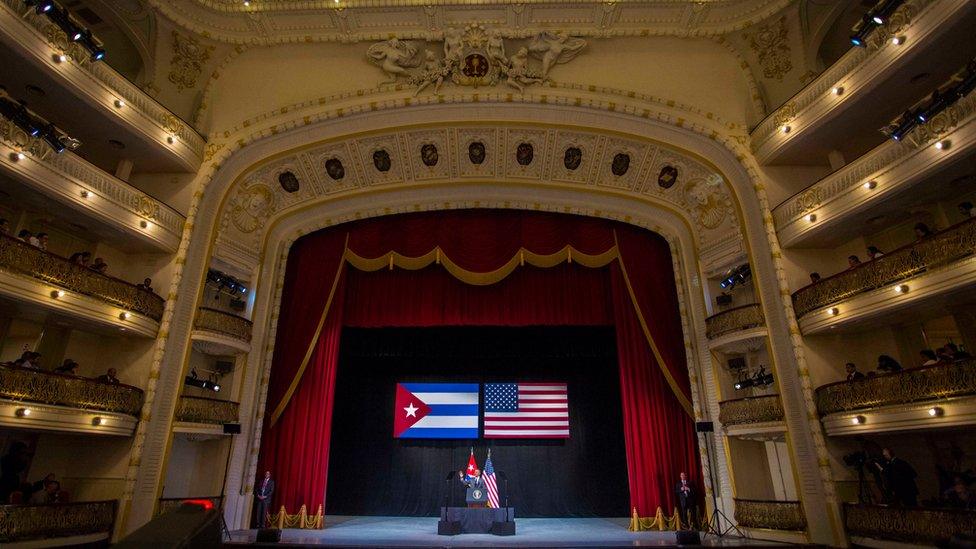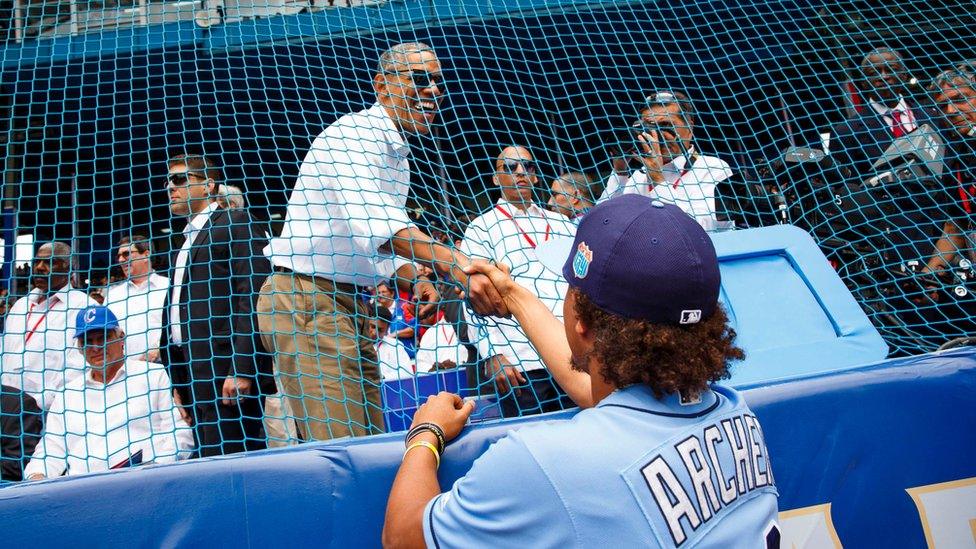Obama invokes 'future of hope' for Cuban people
- Published
In a televised address, Mr Obama said he had come to ''extend the hand of friendship to the Cuban people'
US President Barack Obama has invoked "a future of hope" for Cuba in an unprecedented live TV address delivered from the Grand Theatre in Havana.
Mr Obama said he had come to Cuba "to bury the last remnants of the Cold War" after decades of conflict.
He told Cuban President Raul Castro that he did not need to fear a threat from the US nor from "the voice of the Cuban people".
Mr Obama is the first sitting president to visit Cuba in 88 years.
In his keynote speech on the last day of his three-day visit to Communist-run Cuba, Mr Obama said it was time for the United States and Cuba to leave the past behind and make a "journey as friends and as neighbours and as family, together" towards a brighter future.
He urged Cubans to "leave the ideological battles of the past behind" and to define themselves not through their opposition to the US but just as Cubans.

Raul Castro (center) was in the audience listening to Mr Obama's speech
"For all the politics, people are people and Cubans are Cubans," he said.
He said the time had come for US policy towards Cuba to change because it had not worked and was outmoded, a remnant of the Cold War.
He also called for the lifting of the 54-year old US trade embargo against Cuba, a remark which was met by loud applause.
The embargo remains one of the main sticking points in US-Cuban relations but can only be lifted by the US Congress.
He insisted that the United States would respect the two nations' differences and would not attempt to impose changes on the communist-run island.
But he also said he believed that citizens should be free to speak their mind without fear and to choose their government in free elections.

At the scene, Tara McKelvey, BBC News White House reporter

"I know the history, but refuse to be trapped by it," Mr Obama said
The speech in the theatre was vintage Obama - it had a narrative, starting with the earlier, dark years of US-Cuban relations that date back to the 1950s.
It also had personal elements - he said he was born in the year of the Bay of Pigs, and that afterwards the world nearly came to an end.
Finally it had evocative language - "I know the history, but refuse to be trapped by it" - and a few jokes. And it built up to his larger point, which was his message for the Cuban people - choose democracy. It isn't perfect but it's the best system there is.
He was a powerful speaker in the theatre, and he gave a speech that was eloquent and moving.

He said it was no secret that the Cuban and US governments disagreed on many issues.
Mr Obama acknowledged that there were "flaws in the American system: economic inequality, the death penalty and racial discrimination".
He said those were just a few samples and that Raul Castro had "a much longer list" of US shortcomings and had reminded President Obama of many of them.
"But open debate is what allows us to get better," he said. "Democracy is the way to solve these problems," he added.
After the speech, Mr Obama met in private a group of prominent Cuban dissidents, the most controversial part of his itinerary in the eyes of the Cuban government.
President Castro was visibly angered on Monday when a US reporter asked him about political prisoners held in Cuba.

More on Mr Obama's visit to Cuba
Young Cubans: "We don't want a lot of McDonalds and Starbucks"
Six sticking points to better relations - Guantanamo Bay, human rights and media freedoms are among the unresolved issues
Cuba's DIY economy - A new generation of Cuban entrepreneurs are launching private businesses
Internet access still restricted in Cuba - Only about 5% of Cubans have web access at home

Not accustomed to probing questions from the media, President Castro challenged the reporter to give him a list of political prisoners and denied Cuba was holding any.
Just hours before Mr Obama landed in Havana on Sunday, Cuban security arrested dozens of members Ladies in White, a group which campaigns for the release of political prisoners.
President Obama ended his three-day visit after joining President Castro at the Latinoamericano stadium in Havana.
The two leaders observed a minute of silence for the victims of the attacks in Brussels and watched an exhibition baseball game between the Cuban national team and the Tampa Bay Rays, which won 4-1.

Baseball and diplomacy went hand in hand in Havana
From Havana, Mr Obama has travelled to Argentina.
His presence will coincide with the 40th anniversary on Thursday of the military coup that brought to power of the most brutal military regimes in the region.
Some groups are planning protests because of the alleged support American governments gave to the military coup of 1976.